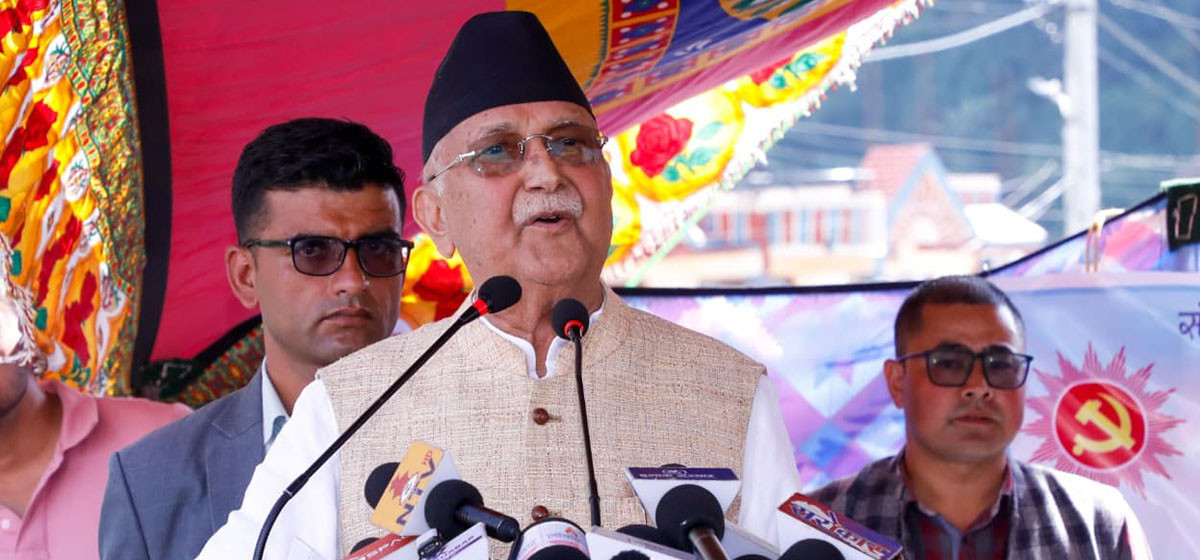The recent report from the Financial Comptroller General Office (FCGO) has revealed a stark reality that the government's reserve fund has plummeted to a negative of Rs 204 billion as of mid-June. This fiscal decline, driven by excessive expenditures surpassing low receipts, underscores the urgent need for decisive action to restore financial stability. With mounting liabilities and dwindling revenue, the adoption of austerity measures and curtailing unproductive expenditure is imperative to avert a looming financial crisis. The report shows that the negative balance in the reserve fund surged by Rs 23.70 billion in the review period, escalating from Rs 181 billion at the end of the previous fiscal year. This trend is a clear indication that the government’s financial health is worsening and needs immediate intervention.
Oli says he didn’t know Home Minister Aryal before he assumed o...

As of mid-June, the government’s total receipts amounted to Rs 944.59 billion, which included Rs 829.03 billion in tax revenue and Rs 90.15 billion in non-tax revenue. Despite these inflows, the government’s expenditure soared to Rs 1.181 trillion. Recurrent expenditure stood at Rs 822.80 billion, capital expenditure at Rs 134.97 billion and interest and loan repayments at Rs 223.50 billion. This expenditure pattern is unsustainable and highlights a critical mismatch between income and outflow. If the negative reserve fund continues to widen, the government may soon be unable to fulfill its payment obligations. The government’s domestic borrowing of Rs 235 billion in the first 11 months of this fiscal year—an 11 percent increase from the previous year—further exacerbates the issue. With only Rs 5 billion of fiscal space remaining for additional loans, the government’s borrowing capacity is nearly exhausted. Moreover, the imminent need to allocate around Rs 70 billion for debt servicing and Rs 140 billion for fiscal equalization and matching grants to sub-national governments compounds the financial strain.
The crux of the problem lies in the disproportionate increase in capital expenditure, which currently stands at a mere 44.68 percent of liabilities on development projects. Historically, capital expenditure spikes in the final month of the fiscal year as the government rushes to meet its development targets. This last-minute surge in spending is both inefficient and detrimental to fiscal health, leading to wastage and misallocation of resources. To navigate this fiscal quagmire, the government must implement stringent austerity measures. A thorough review of recurrent expenditures is necessary to identify and eliminate non-essential spending. Cutting down on bureaucratic overheads, reducing subsidies that do not yield significant social benefits, and delaying non-urgent capital projects could provide immediate fiscal relief. It is equally important to enhance revenue collection mechanisms. Broadening the tax base, curbing tax evasion, and ensuring efficient tax administration can bolster revenue inflows. Encouraging public-private partnerships in development projects can also alleviate the burden on government finances. It is high time the government acted decisively to curb unproductive and unnecessary expenditures, enhance revenues and instill a culture of fiscal prudence to ensure future stability of our economy.




































